第17章
MOPO BECOMES THE KING'S DOCTOR
These, then, my father, were the events that ended in the coming of me, Mopo, and of my sister Baleka to the kraal of Chaka, the Lion of the Zulu. Now you may ask why have I kept you so long with this tale, which is as are other tales of our people. But that shall be seen, for from these matters, as a tree from a seed, grew the birth of Umslopogaas Bulalio, Umslopogaas the Slaughterer, and Nada the Beautiful, of whose love my story has to tell. For Nada was my daughter, and Umslopogaas, though few knew it, was none other than the son of Chaka, born of my sister Baleka.
Now when Baleka recovered from the weariness of our flight, and had her beauty again, Chaka took her to wife, numbering her among his women, whom he named his "sisters." And me Chaka took to be one of his doctors, of his izinyanga of medicine, and he was so well pleased with my medicine that in the end I became his head doctor. Now this was a great post, in which, during the course of years, I grew fat in cattle and in wives; but also it was one of much danger. For when I rose strong and well in the morning, I could never know but that at night Ishould sleep stiff and red. Many were the doctors whom Chaka slew;doctored they never so well, they were killed at last. For a day would surely come when the king felt ill in his body or heavy in his mind, and then to the assegai or the torment with the wizard who had doctored him! Yet I escaped, because of the power of my medicine, and also because of that oath which Chaka had sworn to me as a child. So it came about that where the king went there I went with him. I slept near his hut, I sat behind him at council, in the battle I was ever at his side.
Ah! the battle! the battle! In those days we knew how to fight, my father! In those days the vultures would follow our impis by thousands, the hyenas would steal along our path in packs, and none went empty away. Never may I forget the first fight I stood in at the side of Chaka. It was just after the king had built his great kraal on the south bank of the Umhlatuze. Then it was that the chief Zwide attacked his rival Chaka for the third time and Chaka moved out to meet him with ten full regiments,[1] now for the first time armed with the short stabbing-spear.
[1] About 30,000 men.--ED.
The ground lay this: On a long, low hill in front of our impi were massed the regiments of Zwide; there were seventeen of them; the earth was black with their number; their plumes filled the air like snow.
We, too, were on a hill, and between us lay a valley down which there ran a little stream. All night our fires shone out across the valley;all night the songs of soldiers echoed down the hills. Then the grey dawning came, the oxen lowed to the light, the regiments arose from their bed of spears; they sprang up and shook the dew from hair and shield--yes! they arose! the glad to die! The impi assumed its array regiment by regiment. There was the breast of spears, there were the horns of spears, they were numberless as the stars, and like the stars they shone. The morning breeze came up and fanned them, their plumes bent in the breeze; like a plain of seeding grass they bent, the plumes of the soldiers ripe for the assegai. Up over the shoulder of the hill came the sun of Slaughter; it glowed red upon the red shields, red grew the place of killing; the white plumes of the chiefs were dipped in the blood of heaven. They knew it; they saw the omen of death, and, ah! they laughed in the joy of the waking of battle. What was death? Was it not well to die on the spear? What was death? Was it not well to die for the king? Death was the arms of Victory. Victory would be their bride that night, and oh! her breast is fair.
Hark! the war-song, the Ingomo, the music of which has the power to drive men mad, rose far away to the left, and was thrown along from regiment to regiment--a rolling ball of sound--We are the king's kine, bred to be butchered, You, too, are one of us!
We are the Zulu, children of the Lion, What! did you tremble?
Suddenly Chaka was seen stalking through the ranks, followed by his captains, his indunas, and by me. He walked along like a great buck;death was in his eyes, and like a buck he sniffed the air, scenting the air of slaughter. He lifted his assegai, and a silence fell; only the sound of chanting still rolled along the hills.
"Where are the children of Zwide?" he shouted, and his voice was like the voice of a bull.
"Yonder, father," answered the regiments. And every spear pointed across the valley.